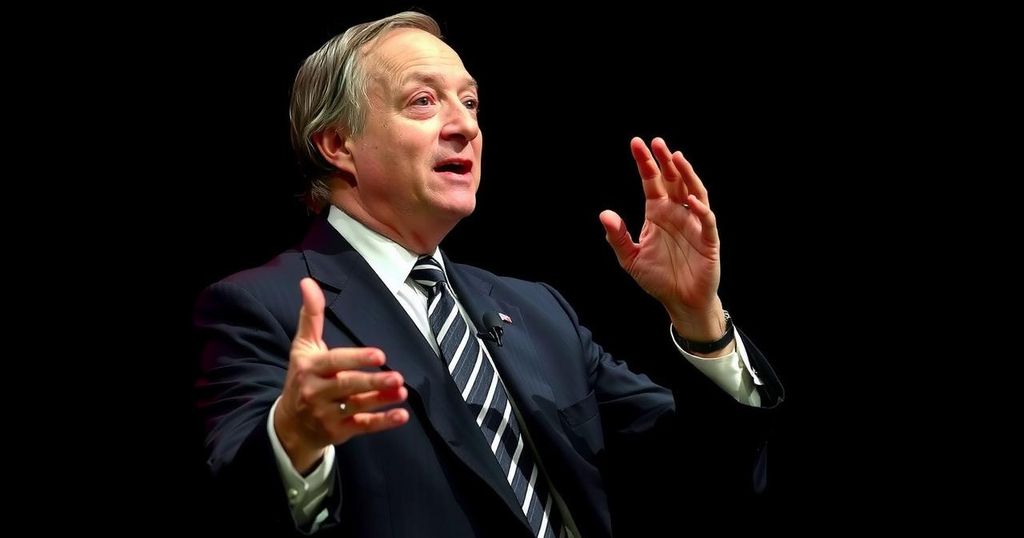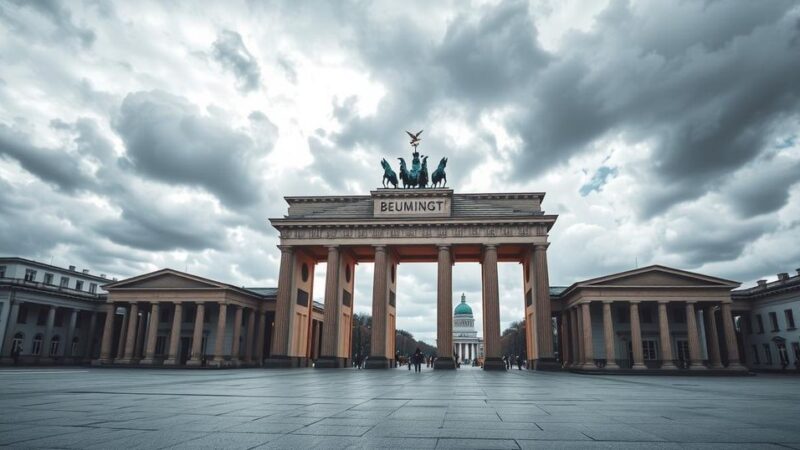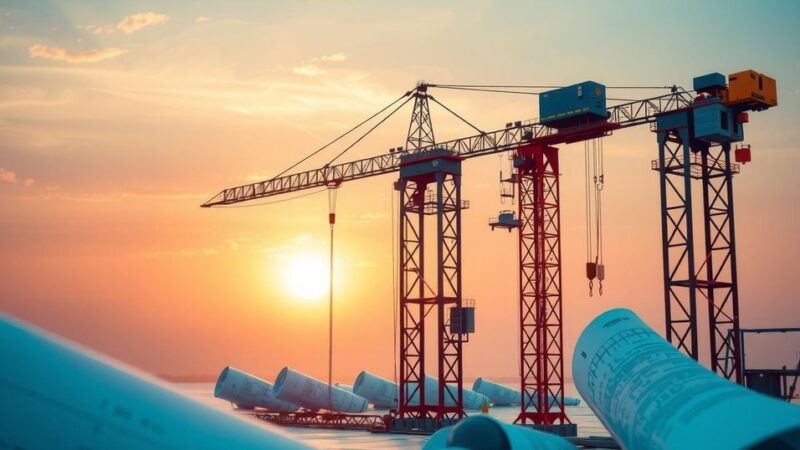Billionaire investor Ray Dalio expressed serious concerns about America following the recent elections, citing extreme political polarization and economic challenges. He emphasized the need for unity and reform, criticized both candidates for not addressing these issues adequately, and highlighted the potential economic implications of their policies. Dalio also warned about rising national debt and suggested incorporating gold into investment portfolios as a risk management strategy.
In a recent address at the Future Investment Initiative conference held in Saudi Arabia, billionaire investor Ray Dalio expressed profound concerns regarding the future of America post-election. He stated that both major political candidates present significant worry, reflecting a broader issue he perceives in the current political climate, characterized by extreme polarization between the Democratic and Republican parties. Dalio emphasized the necessity for the United States to pursue reforms aimed at fostering unity among citizens rather than succumbing to divisive party politics. Dalio noted, “Both of the candidates worry me. This left, right and fighting each other is a problem as it becomes more of the extremes. I think there needs to be a bringing of Americans together, that middle of that, and making great reforms.” He articulated that neither candidate meets his expectations for leadership capable of bridging these divides and initiating essential reforms. During his analysis of the political landscape, Dalio acknowledged the economic implications of the candidates’ policies. He described Republican candidate Donald Trump as being “a lot more capitalist” compared to Democratic candidate Kamala Harris, which he argued could benefit domestic capital markets. Nevertheless, he cautioned that, irrespective of who assumes the presidency, rising national debt and budget deficits would remain critical challenges. Dalio also elaborated on the potential impacts of tax policy differences, particularly the possible consequences of Trump’s proposed tariff revenue strategies on domestic prices and productivity. Dalio further commented on pressing issues beyond partisan debates, pointing to escalating national debt, heightened domestic conflict, external geopolitical tensions, and climate-related challenges as significant concerns for the nation. He stated, “The debt is concerning, the internal conflict is concerning, the external conflict is concerning and certainly the climate and the cost of the climate is concerning.” Additionally, Dalio expressed concerns over the increasing supply of U.S. Treasury securities, noting that foreign holders own approximately one-third of them, which could lead to a supply-demand imbalance with ramifications for investors. He remarked, “We have a real debt problem. … I think one man’s debts is another man’s assets.” This relationship underscores the foundational role of the Treasury market in capital formation amid internal socio-political strife that could exacerbate downturns. For investors looking to navigate this complex landscape, Dalio suggested incorporating gold into a diversified portfolio as a risk management strategy.
Ray Dalio, a prominent billionaire and investor, has voiced his apprehensions regarding the political and economic state of the United States following recent elections. His commentary arises within a context marked by increasing divisiveness between political parties and growing national debt. Dalio’s expertise and influence in financial markets position him as a significant commentator on the intersection of politics and economic stability.
In conclusion, Ray Dalio’s reflections on the state of America post-election highlight a pressing need for unity and reform amidst prevailing political extremes. He underscores the economic implications of the candidates’ policies, warns against escalating national debt, and suggests prudent investment strategies while acknowledging the broader socio-political challenges facing the nation. Dalio’s insights reflect a comprehensive understanding of the potential hurdles that America must navigate as it moves forward.
Original Source: www.cnbc.com






